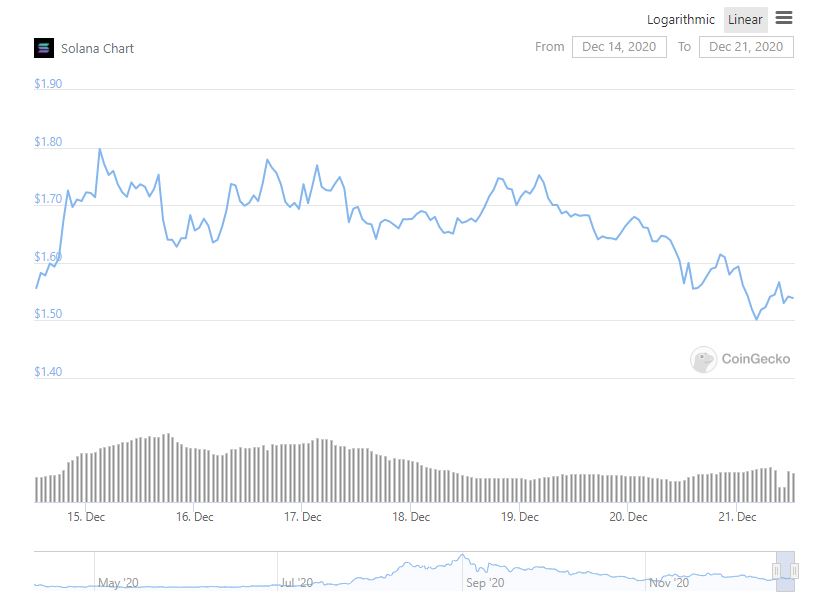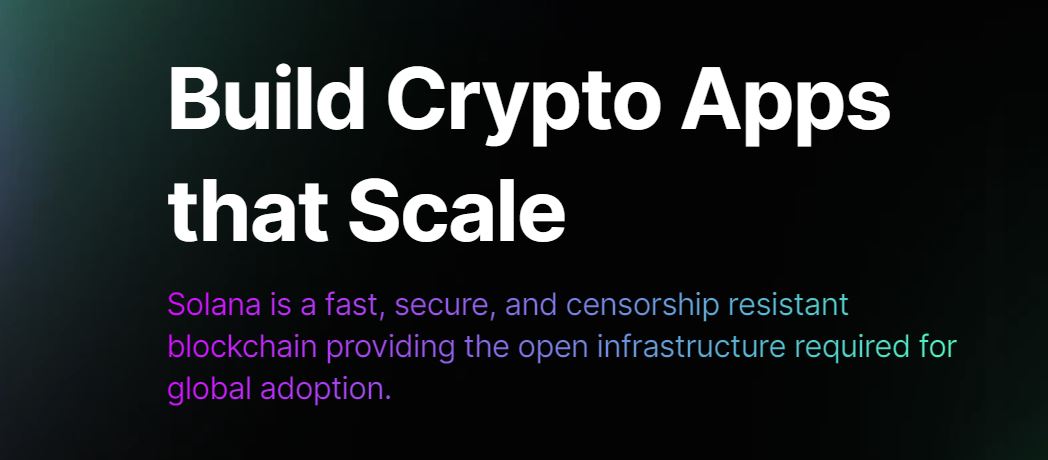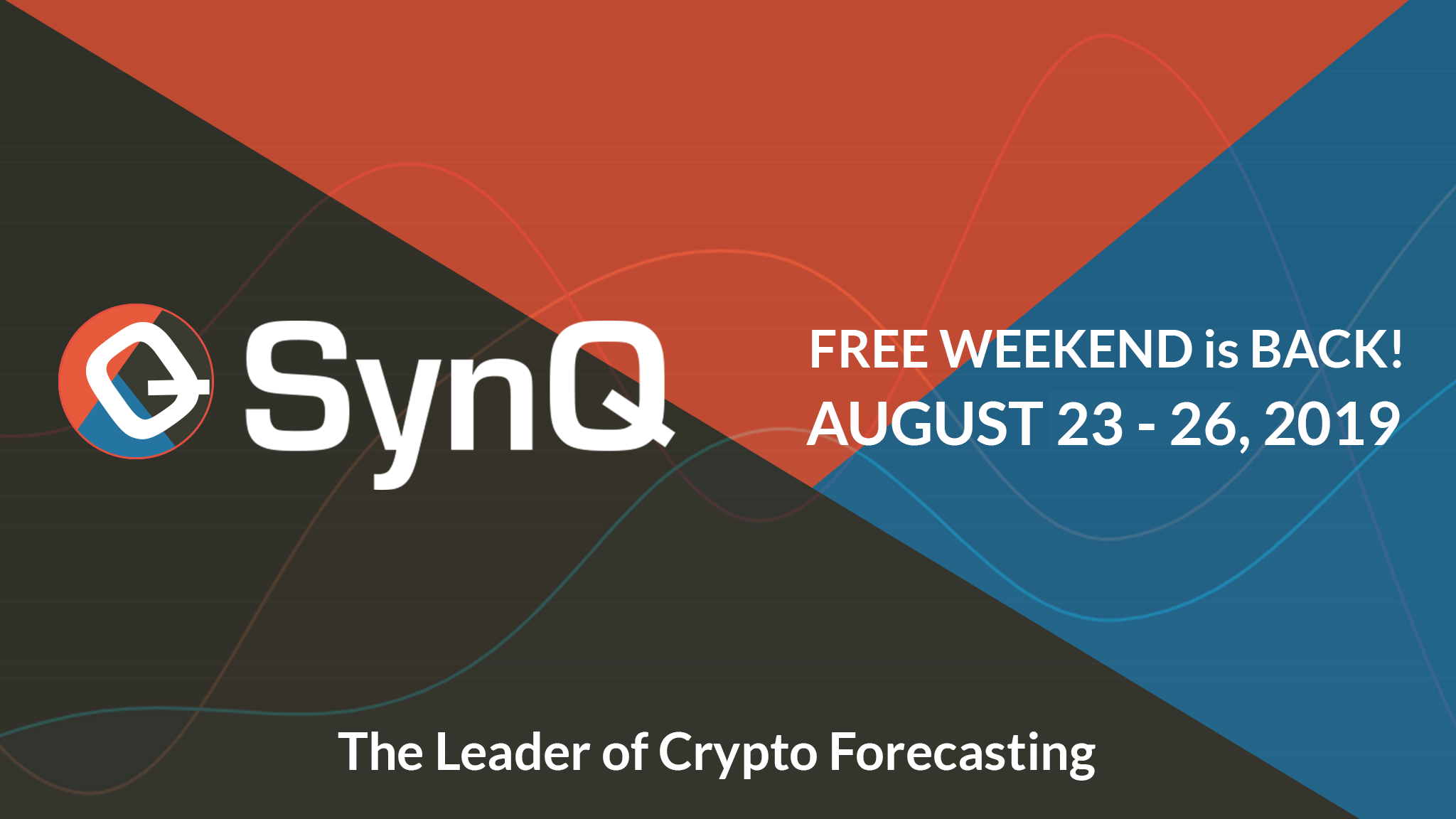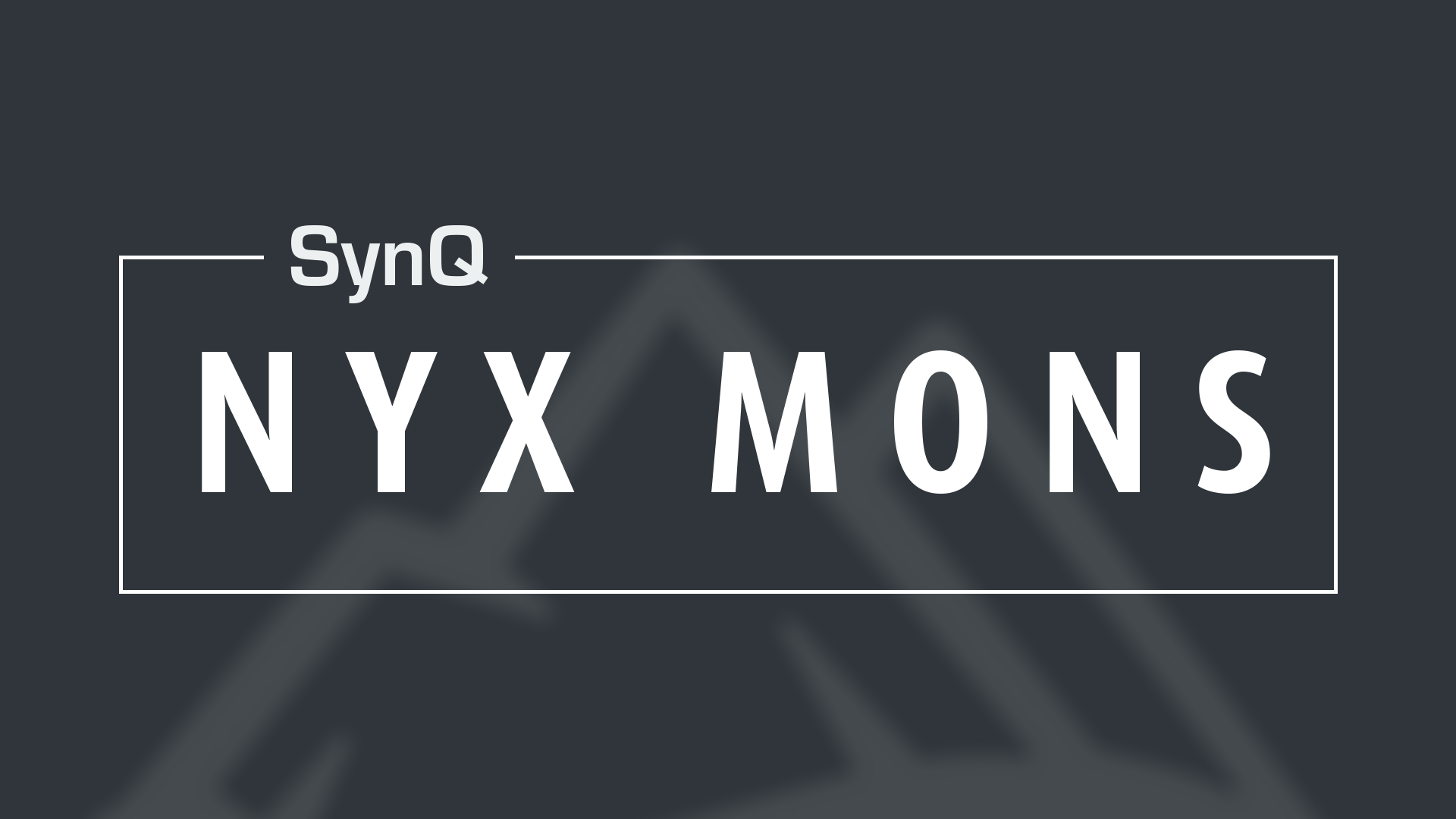Solana
Solana is a layer-1 blockchain that is self-operational and does not delegate operations to any other attached chain, with a slight unique application of Proof-of-Stake; the addition of a component called Proof-of-History (PoH) within its consensus. Note that it is not a Delegated Proof-of-Stake, as that was a common mistake.
In contrast to the traditional usage of PoS protocols, the platform uses its consensus mechanism to timestamp transactions to maximize efficiency. This optimization can process up to 50-60,000 transactions per second, or TPS, with a theoretical limit of over 70,000 TPS.

Transactions are timestamped when they are added to a block, currently implemented at an interval of 800ms, using a decentralized clock based on the SHA256 hash function used in BTC’s Proof-of-Work (PoW) consensus mechanism.

Solana operates using a combination of leaders, validators, archivers, and etc. Leaders are responsible for producing new blocks and rotate every 4 blocks (1.6 seconds). Leaders produce blocks during their allotted slot, and timestamps received transactional entries. This allows transactions within a block to be broken down to their individual entries chronologically and divided into batches where participating nodes share an equally divided workload. Validators receive entries from the leader and submit votes confirming transactions entries are valid. After voting, the validators store result entries until sufficient parity amongst nodes is achieved. Batches of transactions are finally reconstructed after completion.
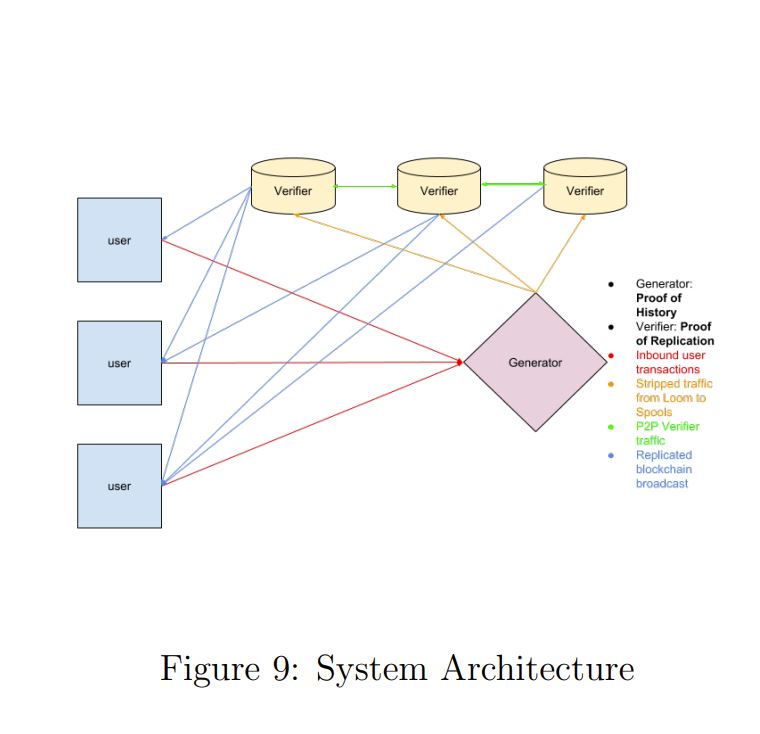
Transactions are initiated when clients send transactions to any validator’s Transaction Processing Unit (TPU) port. If the node is in a validator role, the transaction is forwarded to the designated node leader. Leader nodes bundles incoming transactions and timestamps them to create an entry to deliver to the appropriate cluster.
Clusters are sets of collaborating validator nodes that maintain the ledger integrity of the Solana blockchain. A node can register with any existing nodes and synchronize its registration to all included nodes at a speed proportional to the square number of participating nodes within the cluster. They are capable of subsecond confirmation and can currently support up to 150 nodes, with plans to scale up to hundreds of thousands of nodes. Confirmation time is also expected to increase logarithmically in relation to the numbers of validators.
“If the base is one thousand, for example, it means that for the first thousand nodes, confirmation will be the duration of three network hops plus the time it takes the slowest validator of a supermajority to vote. For the next million nodes, confirmation increases by only one network hop.”
Clusters are created using a genesis config, which will reference two public keys referring to a mint and a bootstrap validator. The bootstrap validator is responsible for the first entries to its specific ledger and will initialize its internal state with the mint account, which holds the number of native tokens as defined by the genesis configuration. The second validator will then be registered to the bootstrap validator as a validator. Additional validators will be registered with any registered member included in the cluster. When two clusters share a common genesis block, they are merged; but otherwise they will operate independently.
Fundamentals
SOL is currently trading at $1.54 with a circulating supply of 46,596,197 and a max supply of 488,630,611 tokens. The current market cap is $71,835,585 USD.
